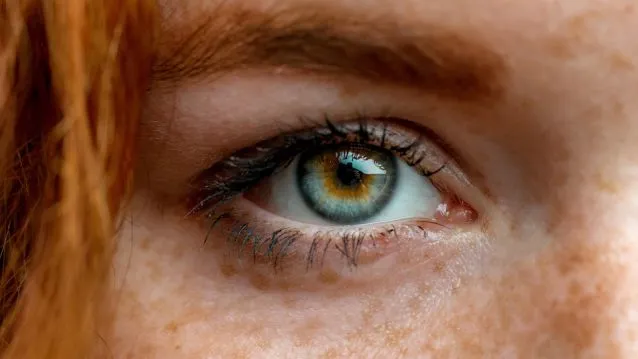As if grey hair and wrinkles weren’t bad enough, our eyes can also begin to fail us as we age. However, even though conditions such as cataracts, glaucoma, and macular degeneration may be common, they are not inevitable. Protect your eyesight every day with these smart and simple tips.
Throw away old makeup
Did you know bacteria grows fast in liquid makeup? Replace your products every three months to avoid developing an eye infection. Never share cosmetics with others and avoid the store samples. Plus, be sure to cleanse your face before and after using makeup. This will help prevent the growth of pathogens that could damage your eyes in the long run.
Take frequent screen breaks
When you stare at a computer, tablet, or phone screen too long, you may experience eyestrain, dry eyes, neck and shoulder pain, and headaches. To avoid these discomforts, try taking a screen break every 20 minutes. While working, adjust your work station to cater to the comfort of your eyes, find a supportive chair and make sure your screen is at eye level, and keep your glasses/contacts prescription up to date and suitable for computer use. Remember to blink often and stay hydrated to keep your eyes from getting dry.
Protect your eyes
Strong sunlight can damage your eyes and may increase the risk of cataracts. The increased UV light is thought to cause changes in the metabolism of the cells in the retina and lens. To protect your eyes against excessive UV exposure, make sure your sunglasses protect against UV-A and UV-B wavelengths, and that they wrap around your face.
Eat more antioxidants
Age-related macular degeneration (AMD) affects as many as one in every three American adults over the age of 60. Recent research reveals that nutrition can play a vital role in protecting against AMD. Two European studies of over 5,000 people concluded that a Mediterranean diet that was rich in vegetables, fruits, whole grains, legumes, fish, poultry, and plant-based oils lowered the risk for AMD.
The antioxidants lutein and zeaxanthin have unique benefits in preventing AMD. They are phytochemicals and help absorb blue light that penetrates deep into the retina. Dark, leafy green vegetables such as spinach, kale, Swiss chard, collard greens, and mustard greens are some of the best sources of lutein and zeaxanthin. Nutrients like beta carotene, vitamins C and E and zinc are also associated with a substantially reduced risk of AMD in elderly persons.
Fish is also great for your eyes. Coldwater fish such as mackerel, wild salmon, and cod are rich in DHA, a fatty acid that strengthens cell membranes, including those in your eyes.
Get more exercise
Many eye diseases are linked to other health problems, including high blood pressure, diabetes, and high cholesterol levels. Exercise can help keep these problems at bay and limit their impact.
Regular exercise delivers many eye-healthy benefits, such as good circulation and improved oxygen intake. Moderate physical exercise, like walking three times per week, can lower your intraocular pressure and improve blood flow to the retina and optic nerve.
The good news about exercise is that you don’t have to be a marathon runner to reap the benefits. Taking a brisk walk, climbing the stairs, and dancing are all great ways to get a good workout that will help you and your eyes stay healthy.
Keep your eyes in good shape
Exercise isn’t just for your body. Since eyes have muscles, you can help keep them in good shape with some simple exercises. Eye exercises can be done upon waking in the morning, throughout the day when your eyes feel tired, and before retiring to bed. Consistent practice could improve eye comfort over the long term.
Begin by warming your eyes for five seconds with warm palms – do this three times. Then, roll your eyes: look up and circle your eyes about ten times in both directions.
To sharpen your focus, hold a pen at arm’s length and focus on it. Move the pen closer until it’s about six inches from your nose. Repeat this process ten times. Finally, practice ‘distance gazing’ by looking at faraway objects or scenery – this will relieve eye stress from looking at screens, mobile phones, and books all day.
Focus on sleep
As you sleep, your eyes are continuously lubricated, and irritants such as dust or smoke that may have accumulated during the day are cleared out. When your body gets enough rest, your eyes become renewed. If you engage in intense visual activity such as working on a computer or reading a book, short breaks go a long way in helping your eyes, as it gives them a chance to rest throughout the day.
Overall, the best way to improve eye health is to take care of your whole body. Healthy choices with diet, sleep patterns, and exercise, regular checkups, and good hygiene, can all keep your body and your eyes in good shape for many years to come.
-Liivi Hess

